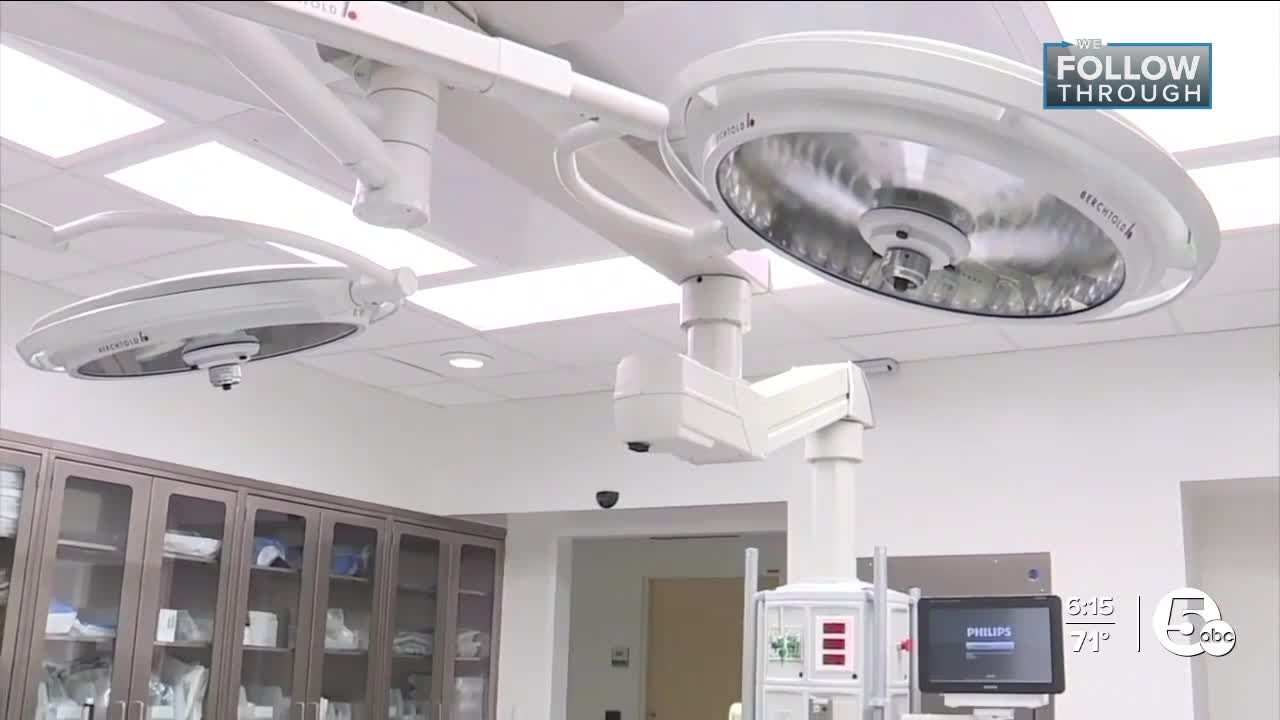CLEVELAND — If you're a patient of the Cleveland Clinic, you likely received an email Tuesday alerting you to a change in hospital policy regarding copays, and the amount of money requested up front for the patient's share of a covered service.
Beginning June 1, the Cleveland Clinic announced that those payments will be required up front for non-emergency outpatient services. If you don't have it? Your visit will be rescheduled or canceled.
Watch more about the announcement below:
In response to our story, we heard many of you voicing your concerns through email and on Facebook.
Folks like patient Linda Sylor.
"It was a shock because it's like one of those things, we've always done it this way and suddenly with about 2.5 weeks notice patients from, who knows, everywhere come to the Cleveland Clinic," said Sylor. "There's gonna be a challenge whether they can prepare for it or not."
Sylor has a Medicare supplement. We heard from a number of you on Medicare who asked if the Clinic is making a policy exception for those on Medicaid, which they told us Tuesday they are, what about Medicare?
We reached out for the answer to that and other questions. The Clinic told News 5 that "patients with traditional Medicare are not impacted by this change, but those with Medicare Advantage may have a copay (depending on their specific Advantage plan)."
Sylor also expressed concerns about how she's found that her copay can vary based on how the appointment is classified as short, medium or long.
"For those, charges are different," she said.
The Clinic responded, "The level of care for an office visit will not impact the copay due. If a patient has a $35 specialist copay, the copay cost is $35 regardless of the level of care provided at that visit."
The Clinic also shared this information that they felt might clarify things for some patients.
- This change only applies to copays, not deductibles, coinsurance, estimates or billing after the visit.
- The copay is a fixed fee determined by the insurance plan, not the Cleveland Clinic. It is paid upfront as part of the patient's health insurance cost for covered services.
- Once a patient is scheduled, our technology interacts with the patient’s insurance information to determine if a copay is required by their selected plan based on the type of visit scheduled.
- This information is then shared with the patient through MyChart and at check-in.
Activist Cassandra McDonald reached out to the hospital system's CEO, asking him to reconsider the charges.
"He's actually going backwards in delivering healthcare," McDonald said, who argues that what is made up in paid copays will be lost elsewhere.
"Because they're going to be going to an emergency room instead of going to a primary care physician or specialist or someone who can meet their needs on a continuous basis," she said.
To be clear, not all of the comments we received were critical of the Clinic's move.
Alisha wrote on Facebook, "If you take your car to a mechanic, you have to pay when services are rendered. So why is this any different?"
Another person, Jesse, asked, "So all this time paying was an option? They ask for the copay, and I pay it. Been that way forever."
Expecting to see more patients as a result are the folks at the Charitable Healthcare Network, which provides several free clinics across Northeast Ohio.
"I can understand in abstract what the Cleveland Clinic is attempting to do with this policy," said CEO Jason Koma. "However, when you look at it, it's got the opportunity to add some barriers to care, and you know when there's a barrier to care that means reduced access, and then that also means more patients may come and see the free clinics and the charitable clinics of the world.
"At the end of the day, you want to make sure that there's not unintended consequences that come forward from what would be a well-meaning policy on paper," Koma said.




